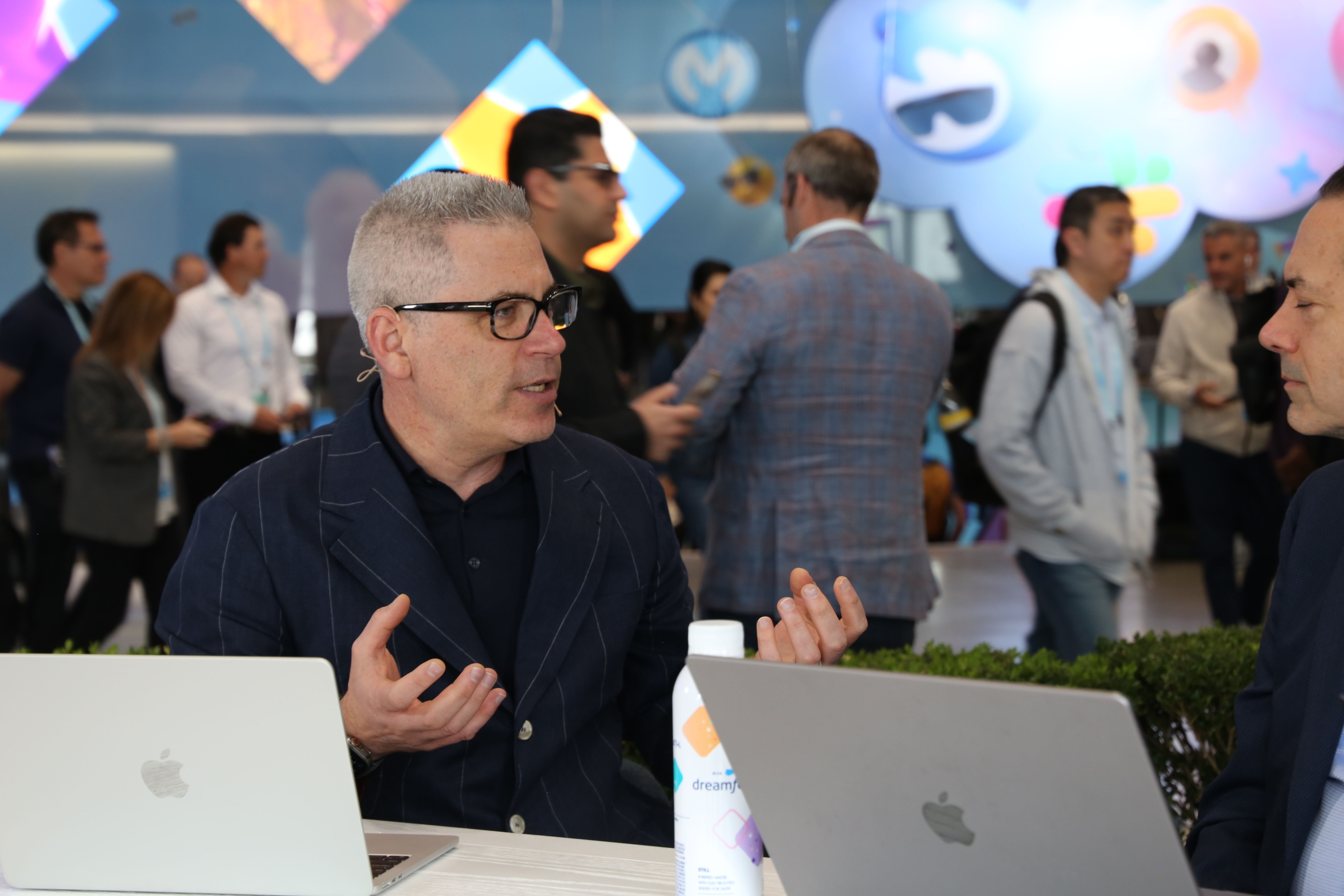 AI
AI
 AI
AI
 AI
AI
Customer-facing tools are just the beginning of Salesforce’s evolving strategy. The company is betting its future on agentic intelligence — from workforce agents to predictive reasoning engines — infused across its newly overhauled platform.
The renamed Agentforce 360 suite now spans nearly every Salesforce application, forming the backbone of its vision for business automation and intelligence, according to Ariel Kelman (pictured), president and chief marketing officer of Salesforce.

Salesforce’s Ariel Kelman talks with theCUBE about the Agentforce platform.
“In just a year, the whole industry has grown up with [agentic AI],” he said. “We’ve been methodically iterating with our customers to work through the difference between something that can demo as an agent, and then how do you roll out agentic AI in the enterprise with all the complexity of actually making it work? It’s not that hard to make an agent work 95% of the time, but that’s not good enough if you’re an actual business who’s trusting this agent with your customers.”
Kelman spoke with theCUBE’s John Furrier and George Gilbert at Dreamforce, during an exclusive broadcast on theCUBE, SiliconANGLE Media’s livestreaming studio. They discussed how agentic AI is impacting sales and its new role in the business world. (* Disclosure below.)
Salesforce sees multiple applications for agentic AI in customer service and marketing, including sales agents that operate on company websites and follow up with leads from customers. The key to a good customer-facing agent, according to Kelman, is to contextualize its responses with the right data.
“You’re going to get worthless outputs if [agents] are not grounded in very detailed data about the customer,” he said. “There’s so many ways that you really can risk the whole brand reputation of a company. The surface area for brand compliance, if I speak as a marketer, has magnified, and you have to make sure that these agents are governed in the right way.”
Those agents in question are managed through the Agentforce platform, which helps users build agents about 15 times faster than if they did it themselves, according to Kelman. He predicts that customers will want a centralized, easy-to-use platform that can ensure agents are governed and production-ready.
“As companies increase, they’re going to look at standardizing on one or maybe two platforms to be able to create data-driven agents,” he said. “ I think where the industry’s heading is platforms for building agents that abstract away a lot of the undifferentiated heavy lifting, a lot of the really hard parts.”
Here’s the complete video interview, part of SiliconANGLE’s and theCUBE’s coverage of Dreamforce:
(* Disclosure: TheCUBE is a paid media partner for Dreamforce. Neither Salesforce Inc., the sponsor of theCUBE’s event coverage, nor other sponsors have editorial control over content on theCUBE or SiliconANGLE.)
Support our mission to keep content open and free by engaging with theCUBE community. Join theCUBE’s Alumni Trust Network, where technology leaders connect, share intelligence and create opportunities.
Founded by tech visionaries John Furrier and Dave Vellante, SiliconANGLE Media has built a dynamic ecosystem of industry-leading digital media brands that reach 15+ million elite tech professionals. Our new proprietary theCUBE AI Video Cloud is breaking ground in audience interaction, leveraging theCUBEai.com neural network to help technology companies make data-driven decisions and stay at the forefront of industry conversations.